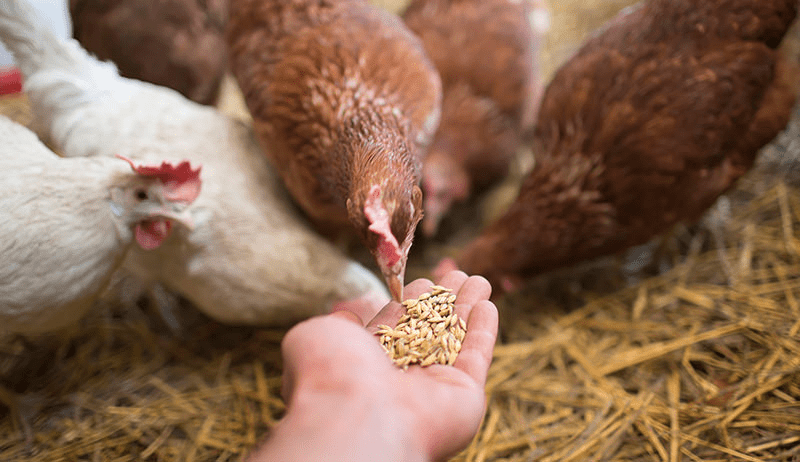- This topic is empty.
- AuthorPosts
- April 4, 2025 at 6:47 am #620384

Raising healthy brooder chickens requires providing the right type of feed at various stages of their development. Brooder chickens, typically in the first few weeks of life, need a specialized diet to support their rapid growth, development, and immune system strength.
The type of feed provided can directly influence the health and productivity of the chickens as they mature into laying hens or broilers. This article explores the different types of feeds available for brooder chickens and the importance of each in supporting their early growth.
1. Starter Crumbles: The Foundation of Brooder Nutrition
Starter crumbles are specifically formulated to meet the high nutritional demands of newly hatched chicks. These feeds are typically finely ground, making them easy for young chicks to consume and digest.
They are rich in protein, vitamins, and minerals, which support rapid growth and immune system development. The protein content, usually derived from soybean meal and fishmeal, is crucial for muscle and tissue development.
Vitamins and minerals, such as calcium and phosphorus, are essential for bone formation and overall health. Starter crumbles are designed to be highly palatable, encouraging chicks to eat frequently and gain weight rapidly.
2. Grower Feeds: Transitioning to Sustained Development
As chicks grow and their nutritional needs evolve, they transition from starter crumbles to grower feeds. Grower feeds contain a slightly lower protein content than starter crumbles, but they provide a balanced nutritional profile to support continued growth and development.
These feeds are often available in larger crumble or pellet form, suitable for the increasing size of the chicks’ beaks and digestive systems.
Grower feeds focus on supporting skeletal and muscle development, preparing the birds for later stages of growth and production. The fiber content in grower feeds also aids in digestive health, ensuring efficient nutrient absorption.
3. Finisher Feeds: Preparing for Maturity
Finisher feeds are introduced as chickens approach market weight or the onset of egg production. These feeds are formulated to promote optimal muscle development and fat deposition, resulting in high-quality meat or eggs.
The protein content is further reduced, while the energy content is increased to support the final stages of growth.
Finisher feeds also contain essential vitamins and minerals to maintain overall health and well-being. This stage is crucial for ensuring that chickens reach their full genetic potential in terms of size and quality.
4. Supplemental Feeds: Addressing Specific Needs
Supplemental feeds play a vital role in addressing specific nutritional deficiencies or enhancing particular aspects of growth and health.
These include vitamin and mineral premixes, protein concentrates, and probiotic supplements. Vitamin and mineral premixes ensure that chickens receive adequate micronutrients, especially in cases where the base feed may be deficient.
Protein concentrates, derived from sources like fishmeal or soybean meal, can be added to the feed to boost protein intake during periods of rapid growth. Probiotic supplements promote a healthy gut microbiome, improving digestion and immune function.
5. Natural and Alternative Feeds: Exploring Sustainable Options
The poultry industry is increasingly exploring natural and alternative feed sources to reduce reliance on conventional ingredients and promote sustainability.
These include insect meal, algae, and locally sourced grains. Insect meal, derived from black soldier fly larvae or mealworms, offers a high-protein, environmentally friendly alternative to fishmeal. Algae, rich in omega-3 fatty acids and antioxidants, can enhance the nutritional value of chicken meat and eggs.
Locally sourced grains, such as maize and sorghum, can reduce transportation costs and support local agriculture. These alternative feeds offer potential benefits in terms of sustainability, cost-effectiveness, and nutritional quality.
Understanding the various types of feeds for brooder chickens and their specific roles in chick development is critical for successful poultry farming. By providing the right nutrition at each stage, farmers can ensure healthy, productive flocks that meet market demands.
Read Also: Preparation of Brooder House: a comprehensive guide
- AuthorPosts
- You must be logged in to reply to this topic.

